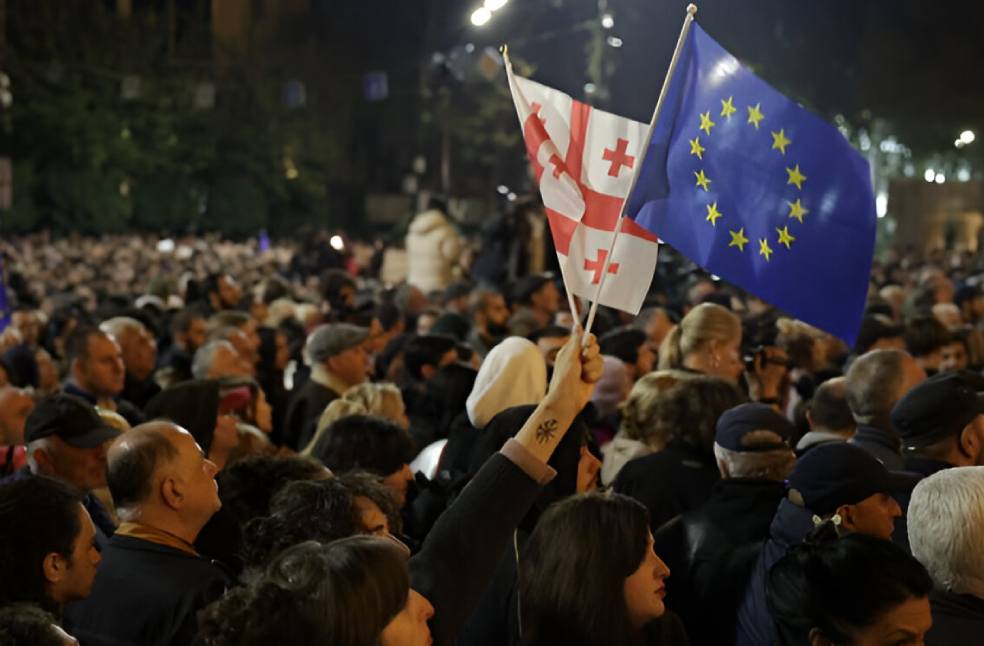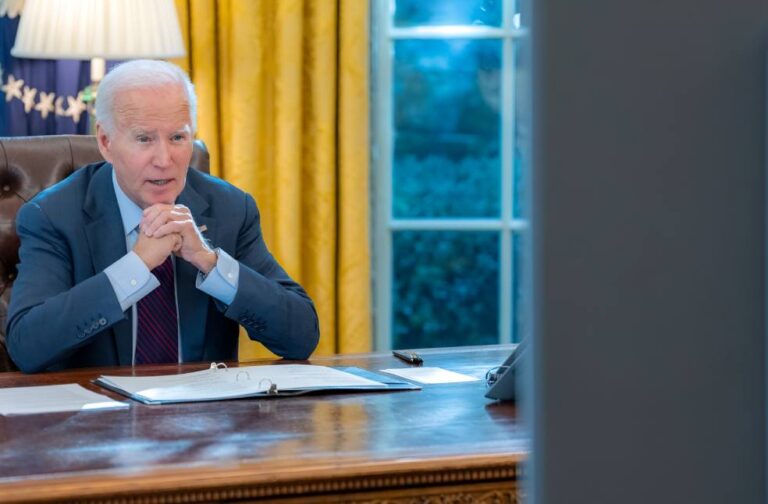Georgia: The Biden administration has called on Georgia’s government to address global concerns over widespread irregularities in parliamentary election. U.S. President Joe Biden criticised what he described as the country’s “democratic backsliding” and urged the Georgian Dream party to revoke recent legislation modelled after Russian policies. Georgian Dream, which claimed nearly 54% of the vote, is under growing pressure to analyse reported instances of voter intimidation, ballot-stuffing, and breaches of electronic voting protocols.
Georgia’s pro-Western President, Salome Zourabichvili, has refused to recognise the election results, calling it part of a “Russian special operation” to convince Georgia back into Moscow’s influence. Zourabichvili’s position aligns with four opposition groups claiming the election was “stolen” by the ruling party under billionaire founder Bidzina Ivanishvili. Meanwhile, the European Union has frozen Georgia’s membership bid, with European Commission President Ursula von der Leyen urging an independent investigation into the alleged irregularities.
The Biden administration’s strong stance is expected to resound within Georgia’s 3.7 million population, amplifying international calls for transparency and reform as concerns over the South Caucasus nation’s democratic trajectory mount.
The Georgian election monitoring group “My Vote” has documented an array of alleged violations, as pressure builds on the ruling Georgian Dream party to address integrity concerns. My Vote, whose 1,500 observers closely observed polling across the country, reports a series of pre-election and election-day abuses, including ID appropriation, vote-buying, ballot-stuffing, and a failure by election authorities to address criminal complaints. Observers claim that weak voter identification controls permitted multiple votes under single IDs, a tactic President Salome Zourabichvili described as “carousel voting.”

The watchdog has called for the annulment of results from 196 polling stations, estimating that irregularities may account for as many as 300,000 extra ballots. Eka Gigauri of Transparency International, a collaborator on the monitoring mission, argued that Georgia’s state institutions have been “captured” and predicted that allegations will go uninvestigated.
The Georgian Election Commission, facing backlash from local and international groups, dismissed accusations as “manipulative disinformation.” It insists the system used, supplied by a U.S.-based company, prevents duplicate voting, asserting that “it is impossible” for a voter to cast multiple ballots using the same ID or to be listed at multiple precincts. The commission is conducting a limited recount in five polling stations per district but stands by the election’s integrity, stating that attempts to undermine the system are “denying reality.”
Prime Minister Irakli Garibashvili has denied widespread fraud allegations, the elections adhered to legal standards and dismissed claims that his government aligns with pro-Russian interests. Meanwhile, opposition and watchdog groups continue to demand transparency and accountability as Georgia’s election results remain under intense scrutiny both at home and abroad.



